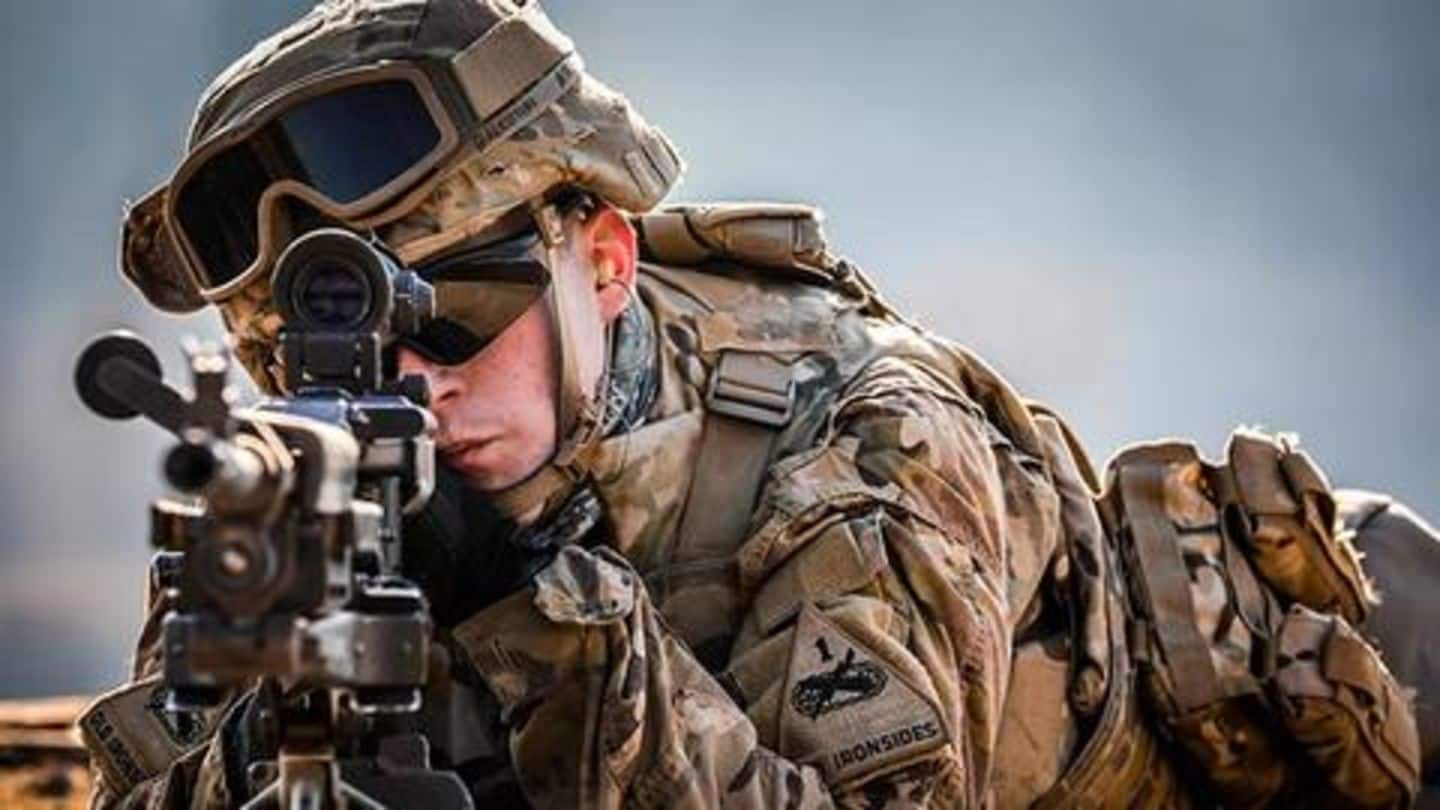
Microsoft's 'Army-specific' HoloLens would bring Call of Duty to life
What's the story
Back in November, Microsoft had won a $479 million contract from the US Army to supply 100,000 modified HoloLens. Pentagon said the deal was aimed at increasing the soldiers' 'lethality' but nobody knew how the devices in question would work. Now, thanks to CNBC, we finally know the exact capabilities of these modified HoloLens headsets and how they'll assist soldiers. Let's take a look.
IVAS
Army's Integrated Visual Augmentation System (IVAS)
The Army recently gave CNBC an exclusive look at an early version of the Integrated Visual Augmentation System, the headsets developed by Microsoft for the training and combat assistance of soldiers. The system builds on HoloLens 2 with an enhanced thermal sensor on top and internal capabilities that bring several elements from typical first-person shooter games into the real world.
Working
What the headset is capable of doing
Todd Haselton from CNBC tried the headset and found that it shows a detailed AR map revealing his as well as his squad members' real-time location. The map gave a detailed view of the building in which Todd stood and also had a compass with different directions marked at different degrees - a feature that could help soldiers locate their targets or teammates.
Feature
Plus, added advantage of thermal imaging
Current night vision goggles help soldiers 'see' in the dark but emit a green glow which can be used by enemies to avoid an incoming assault. However, Microsoft's modified HoloLens 2 solves this hassle with thermal imaging. Basically, it highlights every living person in a particular area as bright white subjects - even it's pitch dark all around; it also allows seeing through smoke/bushes.
Information
Headset even showed a reticle
Among other game-like capabilities, the headset even showed a reticle, which is the aiming point for a gun. Using this, soldiers can point and shoot a target with more accuracy.
Concerns
Now, this could raise concerns
As these features show that HoloLens 2 would be utilized for war, many could raise questions over Microsoft's actions. In February, dozens of employees at the company raised concerns over the same deal, noting that Microsoft "crossed the line into weapons development". For now, the development continues, with Army hoping to give "thousands and thousands" of soldiers access to IVAS by 2022-2023.